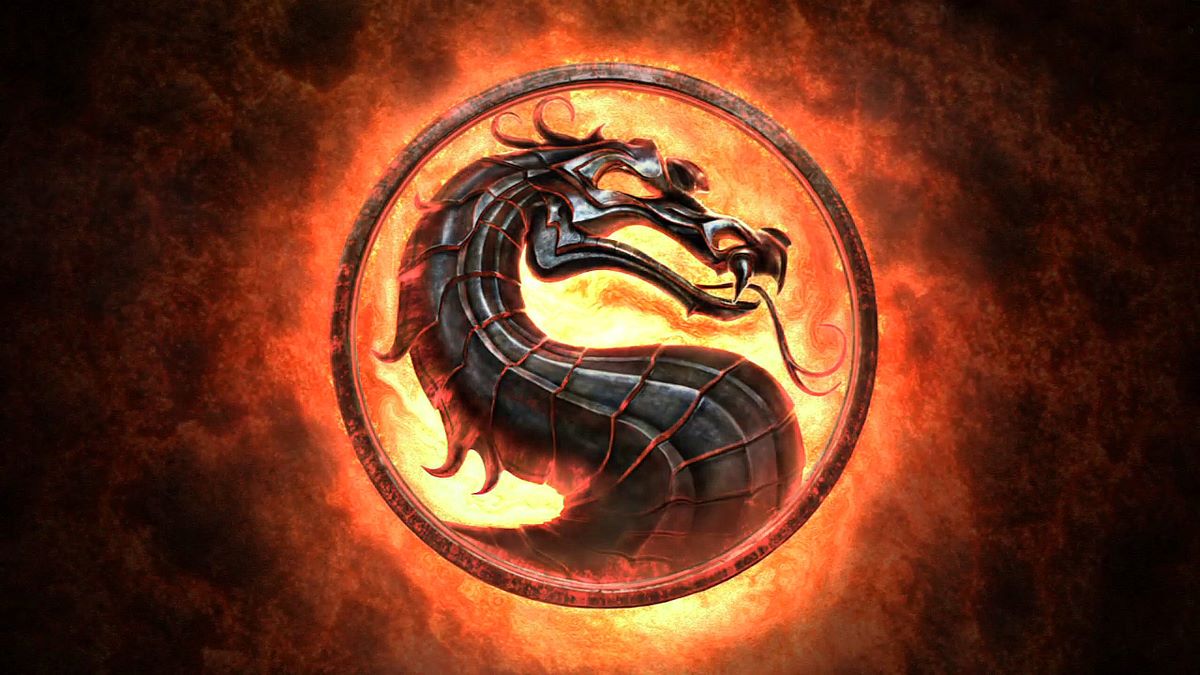The Mortal Kombat fighters have been ripping spines out, bisecting opponents with razor hats, and tearing out hearts for 31 years now. Over that time, the venerable fighting franchise has had its ups and downs, though is about to once again go stratospheric with the impending release of Mortal Kombat 1.
This reboot of the series substantially reworks the kombat, adds some fun new mechanics, and pushes graphical boundaries to become the best-looking fighting game to date. But with such a rich history, perhaps you might want to take a trip back in time to check out where it all began.
Sadly this isn’t as easy as you might think. NetherRealm Studios has resisted putting together a modern retro compilation bringing them all together, so you’re going to have to put in some effort if you want to play ’em all. Admittedly, there’s a catch-all answer to this question in emulation, but here are your options if you want to play them legit.
Mortal Kombat to Mortal Kombat Trilogy
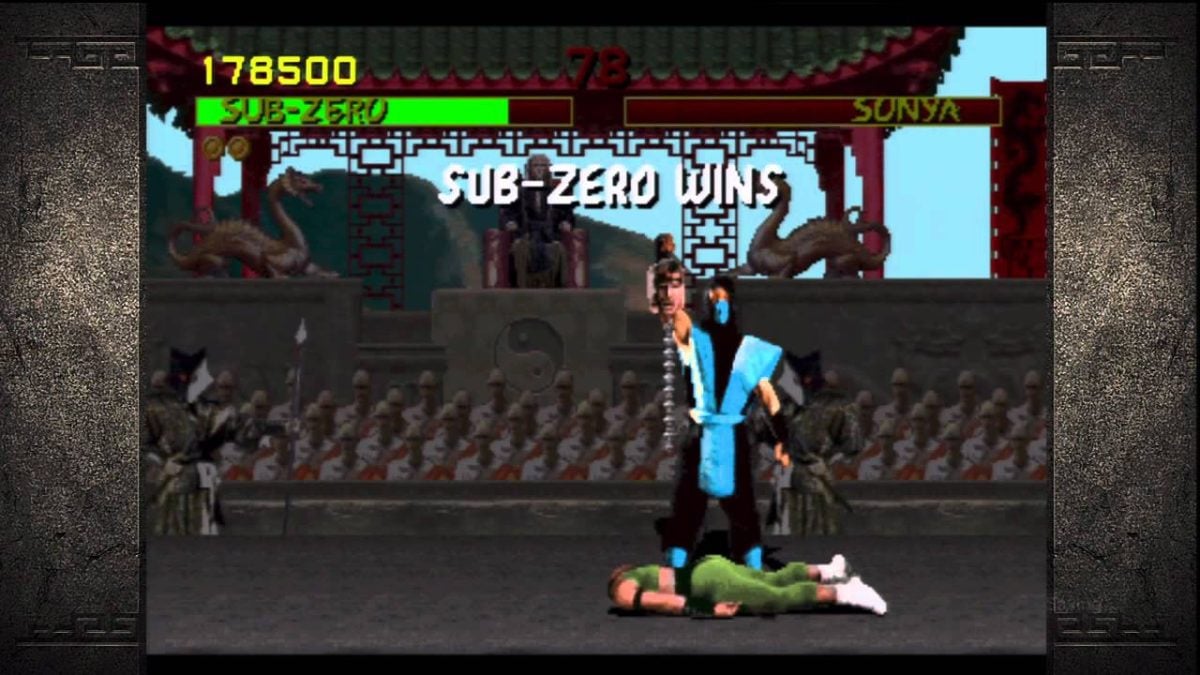
Mortal Kombat, Mortal Kombat II, Mortal Kombat 3, Ultimate Mortal Kombat 3, and Mortal Kombat Trilogy are where it all began. These games, particularly Mortal Kombat and Mortal Kombat II, were a bona fide pop culture phenomenon, shocking prudes and delighting gamers with a bloody cocktail of magical ninjas, cross-dimensional monsters, and special forces experts.
Throughout the 1990s these were ported to every home console under the sun, with versions available on Genesis, Super Nintendo, Sega CD, Game Boy, Game Gear, 32X, Master System, Amiga, Sega Saturn, and PSOne, though even the best of these didn’t capture the full-blooded arcade experience. That said, many ’90s kids will have warm memories of the 16-bit ports (particularly the Genesis ones) and there are worse ways to play these games.
So, where can you enjoy them now? In 2011, NetherRealm released the Mortal Kombat Arcade Kollection on PlayStation 3, Xbox 360, and PC, featuring ports of the arcade versions of Mortal Kombat, Mortal Kombat II, and Ultimate Mortal Kombat 3. Purists have gripes with the emulation of this collection, though it’s a moot point as the Kollection was delisted from all platforms in 2015. That said, a bit of rummaging around Steam key resale sites can turn up a code (I got it for a couple of bucks as late as 2020).
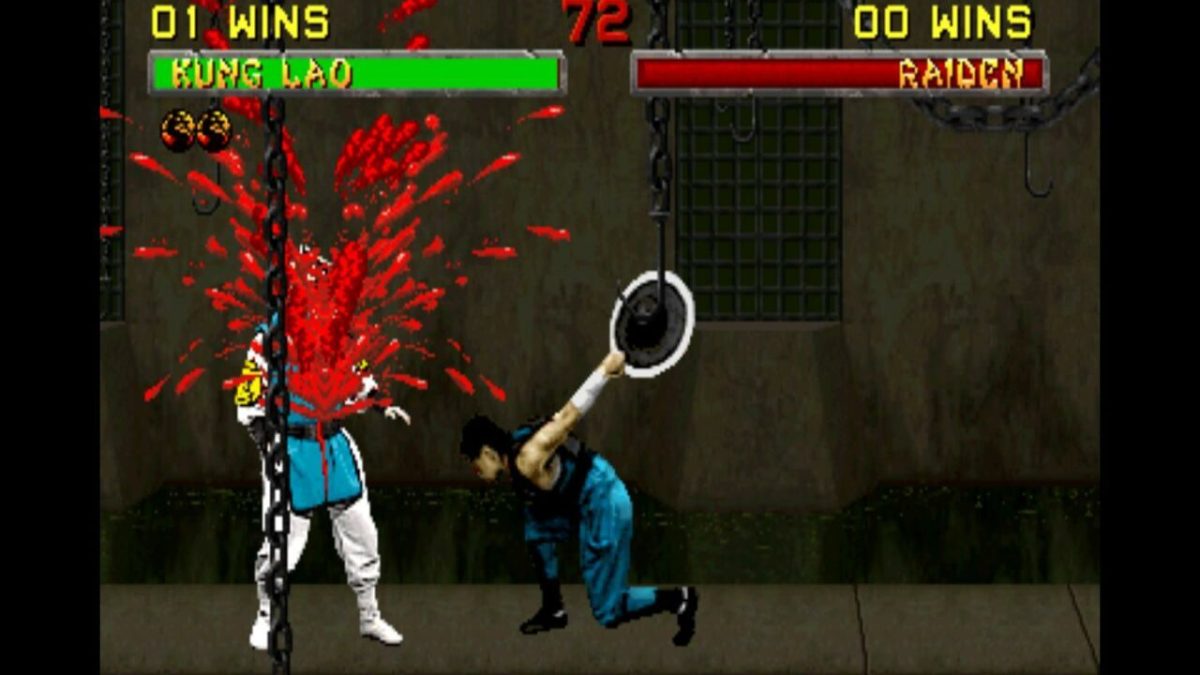
The current best bet is probably GOG.com’s DOS ports of the first three games and Mortal Kombat Trilogy. ’90s DOS ports don’t exactly have a great reputation, but user reviews indicate these are a cut above the rest and the DOSBox wrapper lets you use a modern controller (albeit with some fiddling).
A more obscure (yet possible) option is hunting for the Midway Arcade Treasures: Extended Play compilation on PlayStation Portable UMD, which includes the first three games. The premium edition of 2004’s Mortal Kombat: Deception on PlayStation 2 and Xbox also included the first Mortal Kombat as a bonus feature, though at this point there are far easier options.
It’s also worth bearing in mind that these games were humungous arcade hits, with around 20,000 – 25,000 cabinets sold for each game. As such, various Mortal Kombat titles are a common sight in modern retro arcades / arcade bars — even if they don’t have the original cabinets they’ll probably have a MAME cabinet with them included on it.
Mortal Kombat 4 and Mortal Kombat Gold
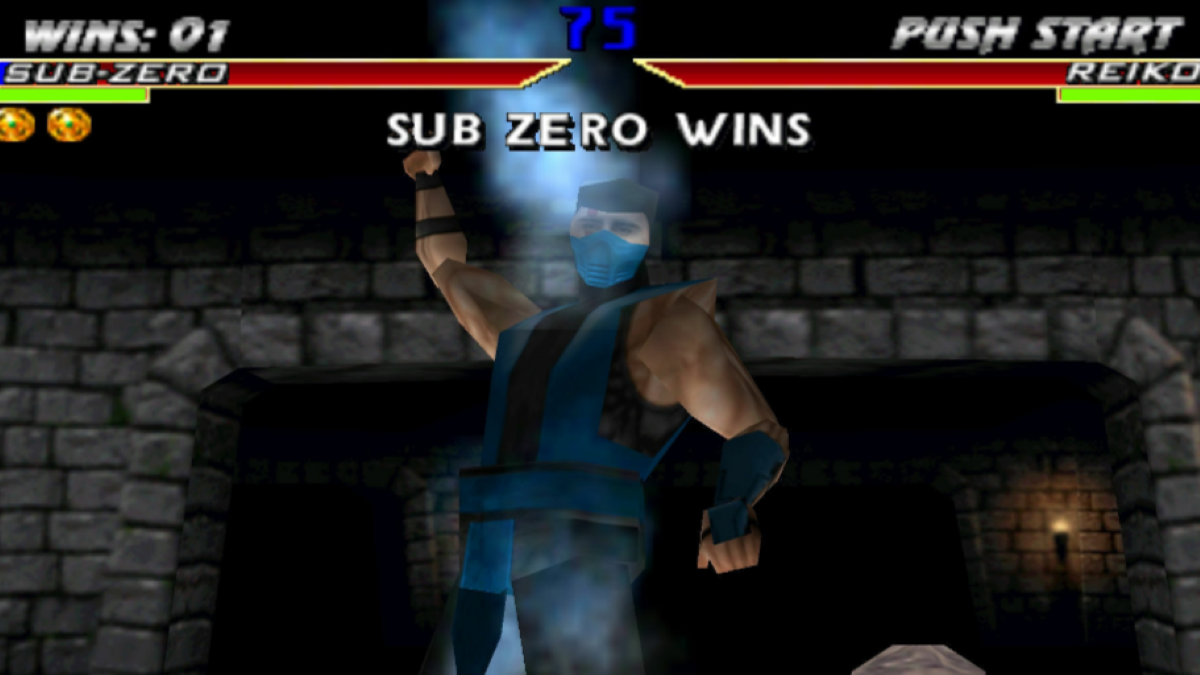
With 1997’s Mortal Kombat 4, Midway ditched digitized sprites and moved into full 3D. The results were… questionable. But though the gameplay may not be a patch on the 2D games, this is still an important title, introducing characters like Shinnok, Quan-Chi, and Fujin.
Options for playing this nowadays are limited. It was released on Nintendo 64 and PlayStation, though also got a PC port. This is now available to buy on GOG.com and has received a decent scrub-up. A 3DFX mod is fully implemented and you can play it in 4K in full widescreen.
Mortal Kombat Gold, essentially an expanded revision containing several additional characters, new stages and additional mechanics, was a Dreamcast launch title in 1999, though has not been re-released on any subsequent platform.
Deadly Alliance, Deception, Shaolin Monks and Armageddon
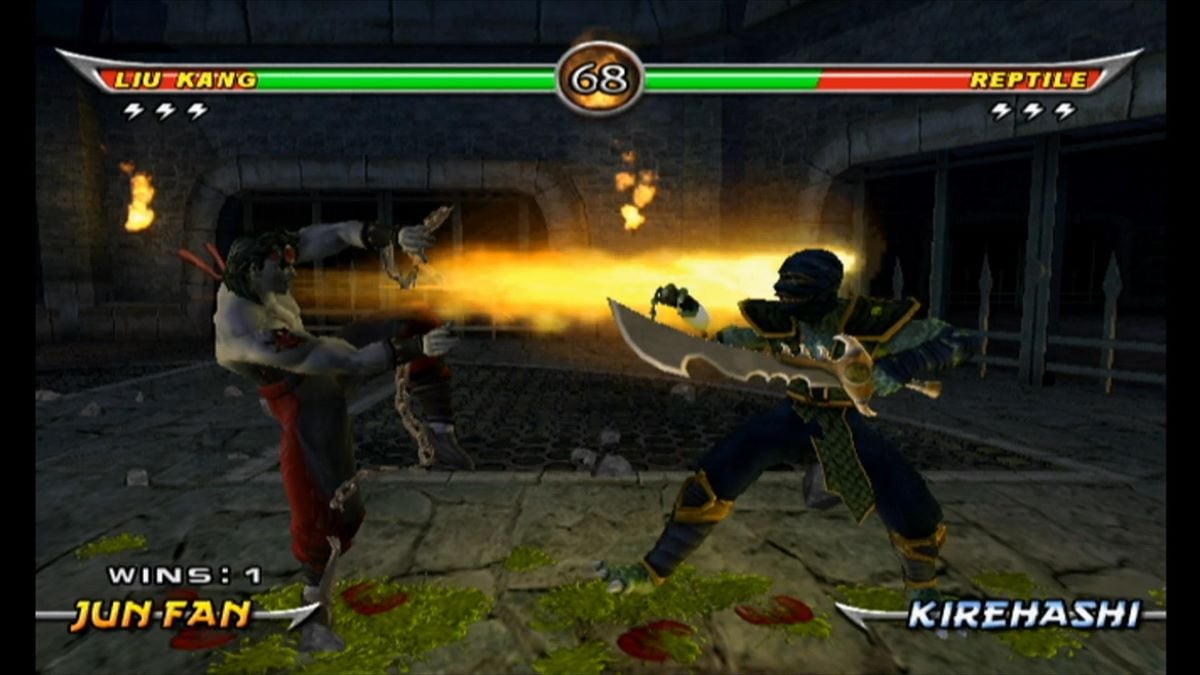
Mortal Kombat may have stumbled in taking its first steps into 3D but soon found its footing with a fine series of sixth-gen console releases between 2002 and 2006. All four were released on PlayStation 2 and competing consoles: Deadly Alliance on GameCube, Deception on GameCube and Xbox, Shaolin Monks on Xbox, and Armageddon on Xbox and Wii.
Sadly, there were no PC ports and there’s currently no legal way to play them other than on their original consoles. If you’re into retro gaming, none of these are particularly expensive to track down, though we feel that an official compilation of these beloved 2000s titles for modern hardware would be a great way to preserve them.
Mortal Kombat vs DC Universe
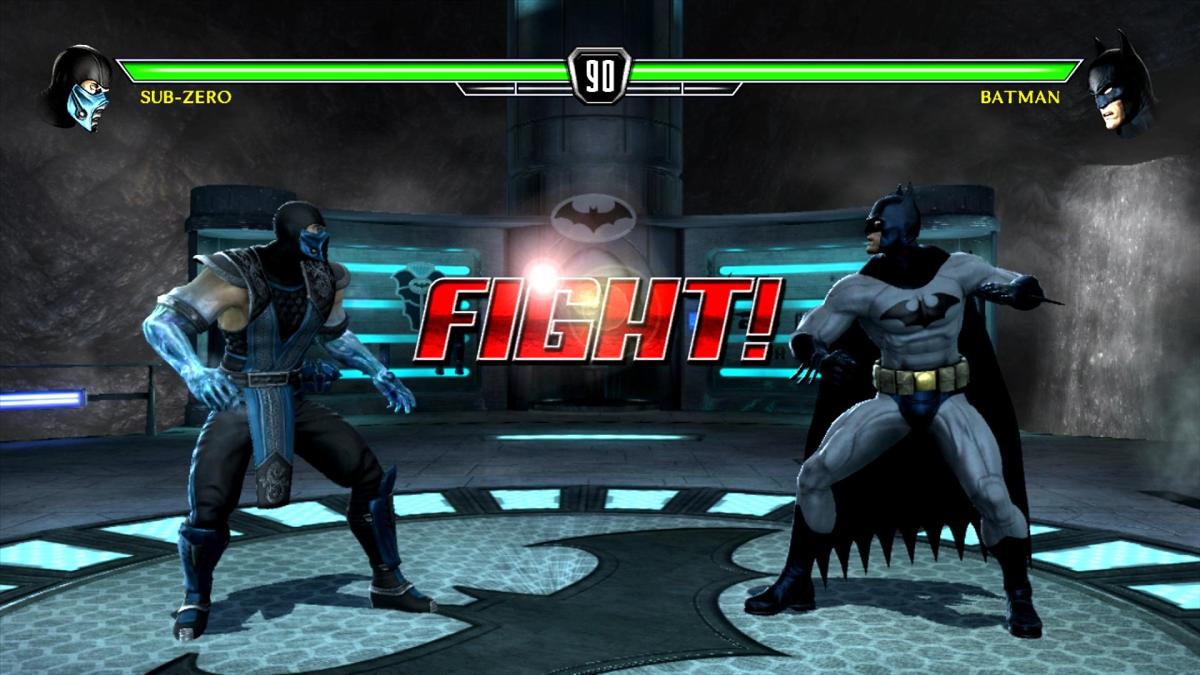
Eyebrows were raised in 2008 when the gory Mortal Kombat franchise announced a crossover with the decidedly more family-friendly DC Universe. The result was Mortal Kombat vs DC Universe (technically Mortal Kombat 8), a fun fighting game with an adorably goofy story about their universes colliding, with the gameplay laying the backbone for both future Mortal Kombat titles and the Injustice series.
Sadly, this title was delisted from the PlayStation, Xbox and Steam stores years ago and spent a long time in the wilderness. Then, in 2021, there was an unexpected ray of light when the Xbox celebrated its 20th anniversary and this was made fully backward compatible with Xbox One and Xbox Series X|S consoles. Sadly the digital version remains delisted, but if you can track down a physical copy of the 360 release, it’ll play perfectly on modern Xbox consoles.
We have a soft spot for the truly bonkers story that brings these characters together and, impressively, as of Mortal Kombat 11, it’s still canon to the over-arching story. In 11, Joker references the events of this game, so if you want the full story, you’re going to have to get deep into some Superman vs Scorpion action.
Mortal Kombat 9
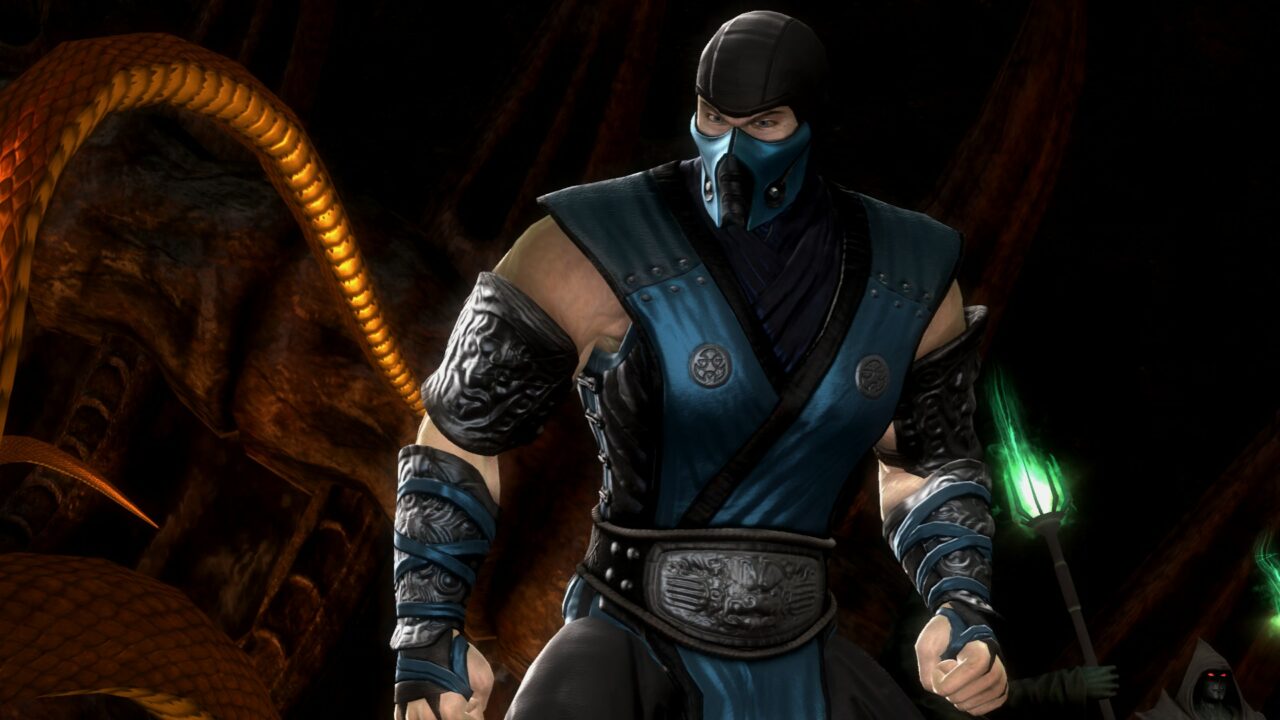
Despite the series’ enduring popularity, the fighting game community had never taken Mortal Kombat particularly seriously. That changed with 2011’s Mortal Kombat (aka Mortal Kombat 9 to avoid confusion), which revamped and polished the game’s systems to make it viable in the competitive scene. It also has a very fun story mode and a ton of cool features.
So it was with a weary groan from players when it unexpectedly disappeared from sale on PlayStation, Xbox, and PC in 2020. Theories range from Warner Bros. Interactive wanting to shut the online servers down and not wanting to sell an incomplete game, to rights issues with the Freddy Krueger DLC and Wes Craven’s estate.
Whatever the real reason, in 2023, it’s now much more difficult to play. PC players can venture into the murky waters of key resellers to pick up a Steam code (it’s currently in the region of $20 for the Komplete Kollection but as always with these sites, buyer beware). But, thankfully, Mortal Kombat 9 is at least backwards compatible on Xbox One and Xbox Series X|S and physical 360 copies aren’t too hard to find. This story would go on to inform both Mortal Kombat X and Mortal Kombat 11, so it’s disappointing that it’s now so hard to access.
And the rest
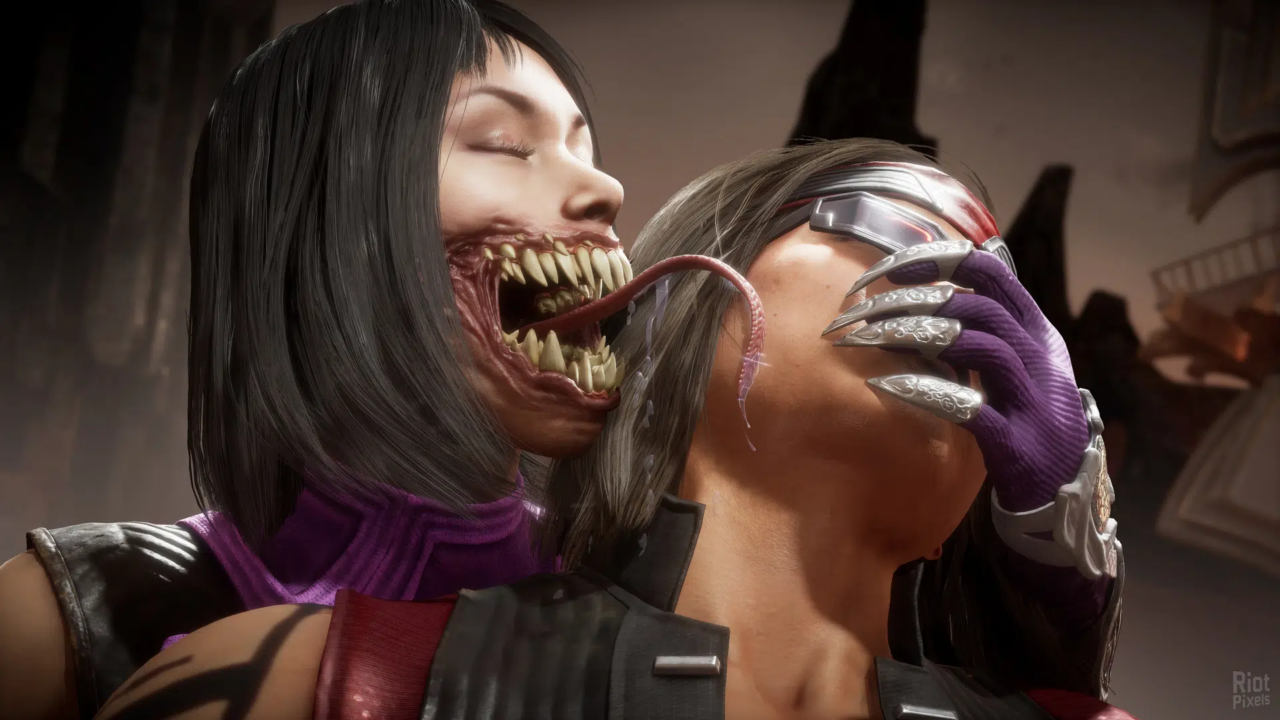
After Mortal Kombat 9, it’s smooth sailing, with 2015’s Mortal Kombat X and 2019’s Mortal Kombat 11 available for sale on all modern platforms (often at deep discount). But the Mortal Kombat franchise has taken some strange turns over the years and there are two other titles outside the mainline series for completionists only.
For example, there were two single-player Mortal Kombat adventures in 1997’s Mortal Kombat Mythologies: Sub-Zero on N64 and 2000’s Mortal Kombat: Special Forces on PSOne. But buyer beware, as both of these games are absolutely terrible and, understandably, have never been re-released or ported.
So, if you want to play the full Mortal Kombat series, it’s going to be tricky to do so legally, though where there’s a will, there’s a way.
We would love to see a polished museum-style retro kollection that brings the older games together in one release, ideally with concept art, developer interviews, and behind-the-scenes images and video of the sprite photography sessions (and maybe even a few of the home console ports to let us compare versions).
The older Mortal Kombat titles might feel clunky and rigid to younger gamers, though their enduring popularity in retro arcades indicates there are many out there with those iconic Mortal Kombat 2D fatalities burned into their muscle memory. Here’s hoping this retro dream eventually becomes a reality.
Mortal Kombat 1 arrives on PlayStation 5, Xbox Series X|S, Switch, and PC on Sep. 14

